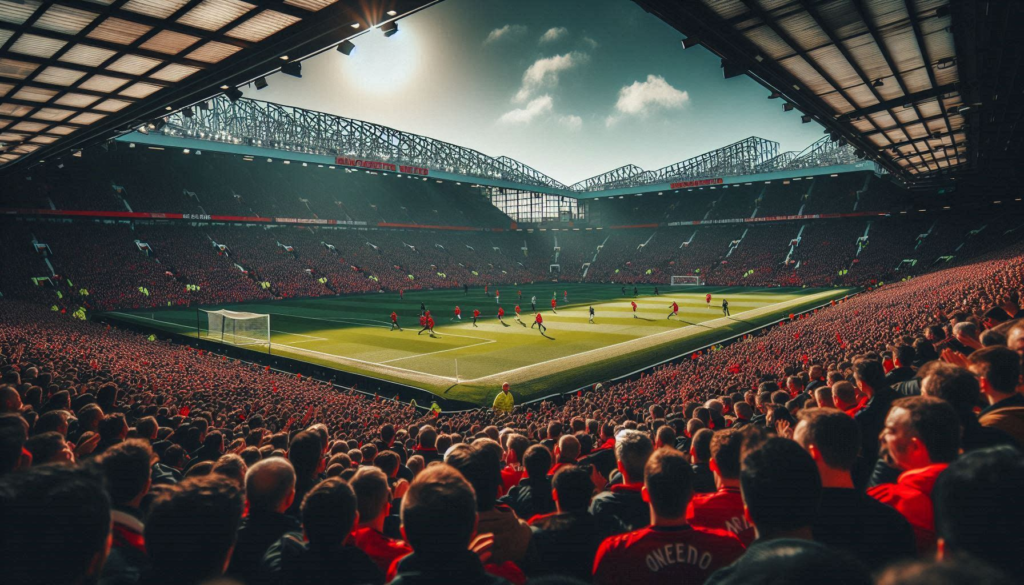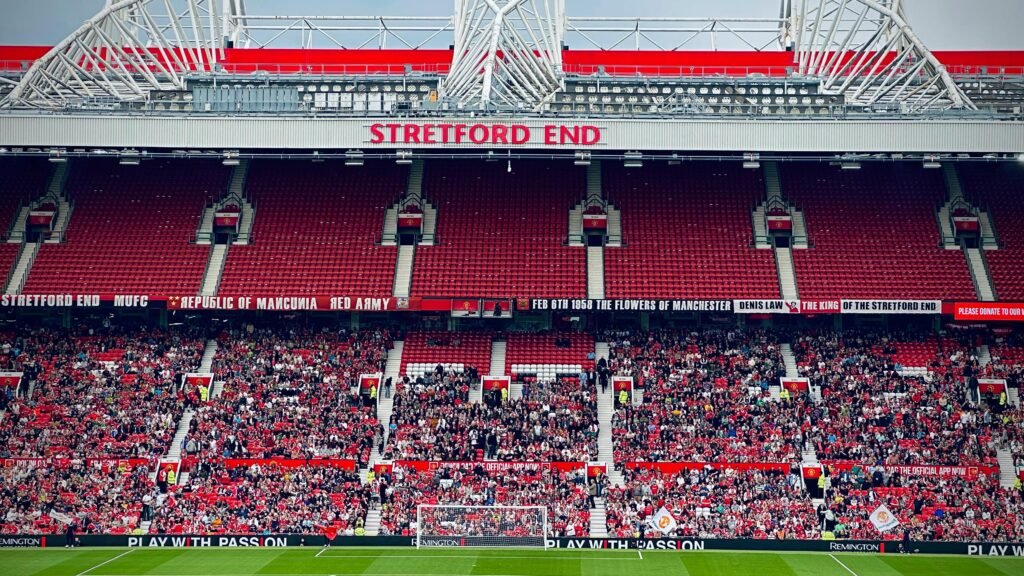Why is it Called Old Trafford?
-
 Sesko Manchester United Phone Case For Apple Samsung and Google Mobile Phones£14.99
Sesko Manchester United Phone Case For Apple Samsung and Google Mobile Phones£14.99 -
 Cunha Manchester United Phone Case For Apple Samsung and Google Mobile Phones£14.99
Cunha Manchester United Phone Case For Apple Samsung and Google Mobile Phones£14.99 -
 Cunha Manchester United Phone Case For Apple Samsung and Google Mobile Phones£14.99
Cunha Manchester United Phone Case For Apple Samsung and Google Mobile Phones£14.99 -
 Bruno Fernandes FA Cup Winner Manchester United Phone Case For Apple Samsung and Google Mobile Phones£14.99
Bruno Fernandes FA Cup Winner Manchester United Phone Case For Apple Samsung and Google Mobile Phones£14.99
Historical Background
Old Trafford, the iconic home of Manchester United Football Club, derives its name from the area in which it is located. The name “Old Trafford” has historical roots dating back to the existence of two prominent halls in the region: Old Trafford Hall and New Trafford Hall12. These halls were situated in the Stretford area of Greater Manchester, and over time, the name “Old Trafford” became synonymous with the surrounding locality2.
The River Irwell and the Trafford Halls
The River Irwell originally flowed through the area, and the distinction between the two halls likely contributed to the naming convention. Old Trafford Hall was the older of the two, and as such, the area around it began to be referred to as Old Trafford2. This historical context provided a natural and straightforward naming choice for the football stadium when it was constructed.
Construction of the Stadium
Manchester United’s stadium, Old Trafford, was opened in 1910. At the time, naming the stadium after the already established name of the area made practical sense. The proximity to Old Trafford Cricket Ground, which had been in existence since 1857, further reinforced the use of the name13. The football stadium was thus named Old Trafford, aligning with the local identity and heritage.
Cultural Significance
Over the years, Old Trafford has become more than just a name; it has grown into a symbol of footballing excellence and history. The stadium has witnessed numerous memorable moments, including league titles, FA Cup victories, and European triumphs1. It was famously dubbed “The Theatre of Dreams” by Sir Bobby Charlton, reflecting its status as a hallowed ground for football fans3.
Modern Day
Today, Old Trafford stands as the largest club football stadium in the United Kingdom, with a capacity of 74,3103. It continues to be a central hub for football, hosting not only Manchester United’s home games but also significant events in rugby and other sports3. The name Old Trafford remains a testament to the area’s rich history and the enduring legacy of the stadium.
Manchester United 25/26 Premier League Fixtures
Manchester United 2025/26 Premier League Fixtures Home Fixtures (🏠) vs Away Fixtures (✈️) MatchweekDateVenueOpponentKick-offMW1Sun 17…
Manchester United 5-4 Lyon (7-6 Aggregate): A Night of Unbelievable Drama at Old Trafford
Manchester United 5-4 Lyon (7-6 Aggregate): A Night of Unbelievable Drama at Old Trafford Old…
United In Shock Move For Inzaghi
Manchester United’s Bold Move: Simone Inzaghi Set to Take Over at Old Trafford In a…
Manchester United Vs Brentford – Match Report
Manchester United 2-1 Brentford: Red Devils Stage Dramatic Comeback In a thrilling Premier League encounter…
Alejandro Garnacho – The Rise Of Manchester United’s Young Star
Alejandro Garnacho Ferreyra, born on July 1, 2004, in Madrid, Spain, has quickly become one…
Saved By Maguire – Porto Vs Manchester United
Porto vs Manchester United: A Rollercoaster Europa League Encounter Key Moments 7′: Marcus Rashford opens…




